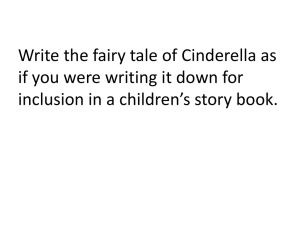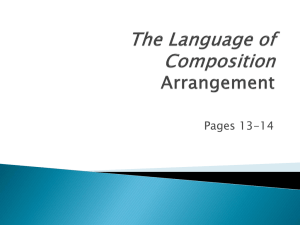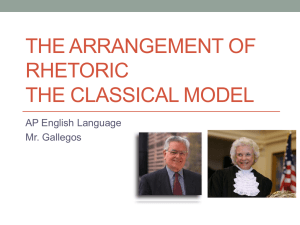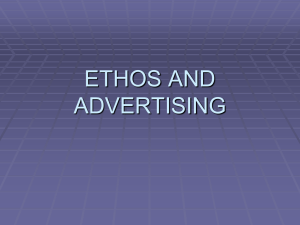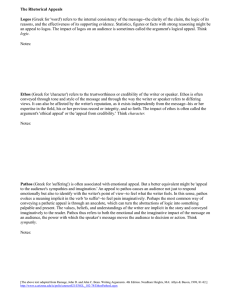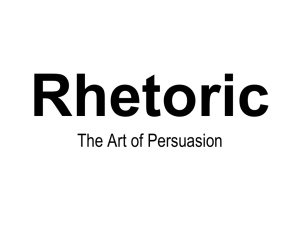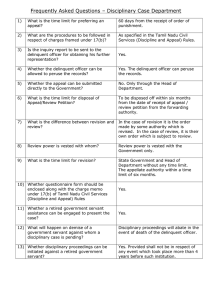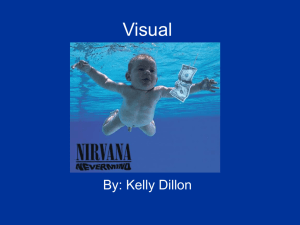Rhetorical Devices
advertisement
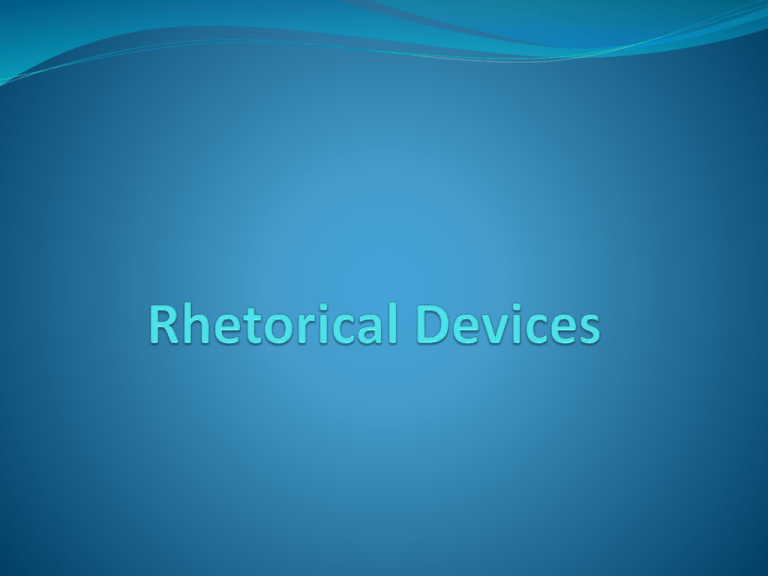
Ethos A personal appeal An ethical appeal Speaks to character Example: "If, in my low moments, in word, deed or attitude, through some error of temper, taste, or tone, I have caused anyone discomfort, created pain, or revived someone's fears, that was not my truest self. If there were occasions when my grape turned into a raisin and my joy bell lost its resonance, please forgive me. Charge it to my head and not to my heart. My head--so limited in its finitude; my heart, which is boundless in its love for the human family. I am not a perfect servant. I am a public servant doing my best against the odds." (Jesse Jackson, Democratic National Convention Keynote Address, 1984) To Develop Ethos Language appropriate to audience and subject Restrained, sincere, fair minded presentation Appropriate level of vocabulary Correct grammar Pathos An emotional appeal Emotions range from mild to intense; some, such as well-being, are gentle attitudes and outlooks, while others, such as sudden fury, are so intense that they overwhelm rational thought. Example: "A brilliant young woman I know was asked once to support her argument in favor of social welfare. She named the most powerful source imaginable: the look in a mother's face when she cannot feed her children. Can you look that hungry child in the eyes? See the blood on his feet from working barefoot in the cotton fields. Or do you ask his baby sister with her belly swollen from hunger if she cares about her daddy's work ethics?" (Nate Parker as Henry Lowe in The Great Debaters, 2007) To Appeal to Emotion (Pathos) Vivid, concrete language Emotionally loaded language Connotative meanings Emotional examples Vivid descriptions Narratives of emotional events Emotional tone Figurative language Logos Appeal to logic Persuasion by means of logical proof, real or apparent Example: “Let us begin with a simple proposition: What democracy requires is public debate, not information. Of course it needs information too, but the kind of information it needs can be generated only by vigorous popular debate. We do not know what we need to know until we ask the right questions, and we can identify the right questions only by subjecting our ideas about the world to the test of public controversy. Information, usually seen as the precondition of debate, is better understood as its by product. When we get into arguments that focus and fully engage our attention, we become avid seekers of relevant information. Otherwise, we take in information passively--if we take it in at all.” Christopher Lasch, "The Lost Art of Political Argument" To Appeal to Logic (Logos) Theoretical, abstract language Denotative meanings/reasons Literal and historical analogies Definitions Factual data and statistics Quotations Citations from experts and authorities Informed opinions
